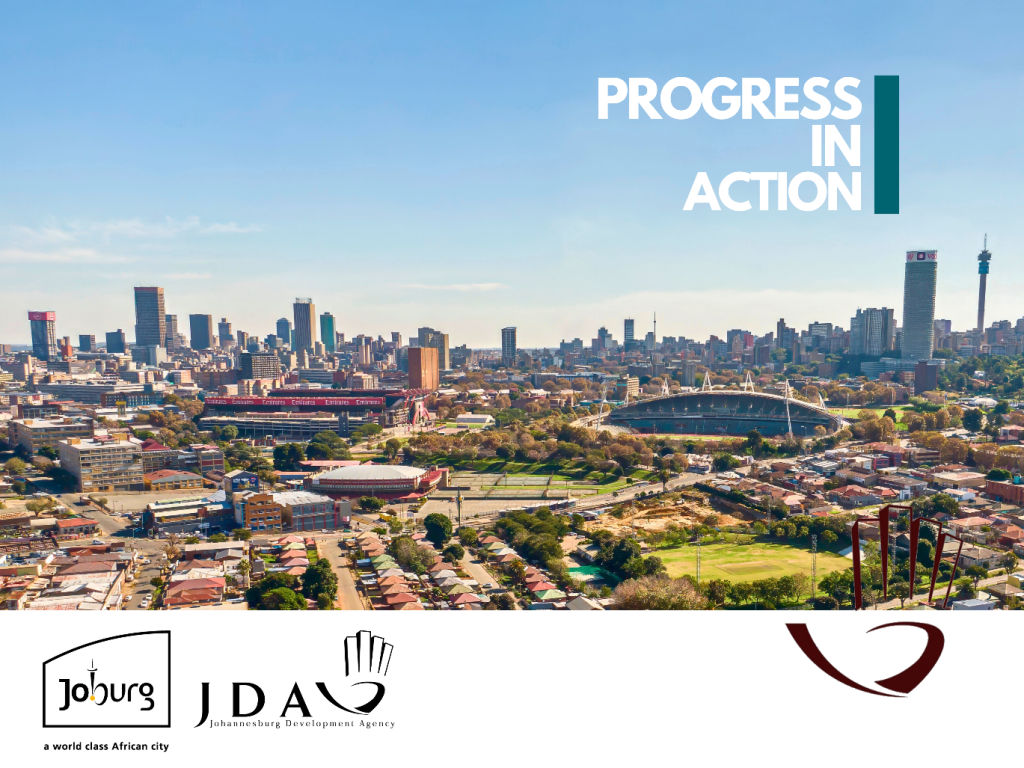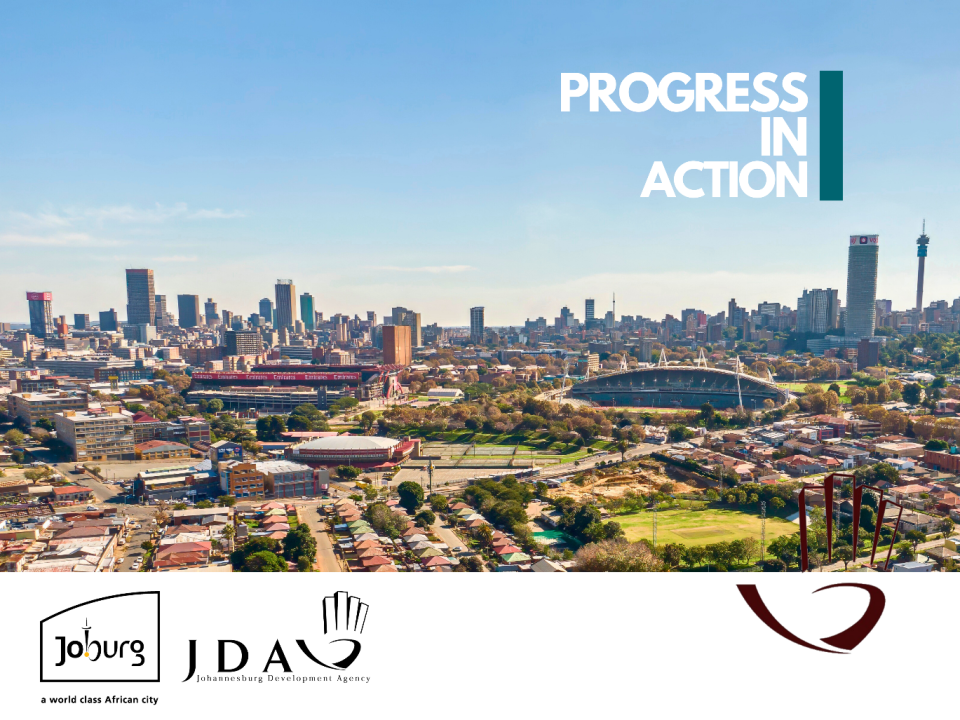
With a new board appointed and the Johannesburg Development Agency’s (JDA) 2024/25 financial year in full swing, the agency will take a hands on approach to addressing the previous financial year’s shortcomings and ensure continual improvement in the current financial year.
The City of Johannesburg has unveiled its R83.1 billion budget for the 2024/25 financial year, prioritising investments in infrastructure renewal and service delivery to revitalise the city. The JDA has implemented over 1300 projects for the City of Johannesburg and plays a key role in developing South Africa’s economic hub.
KEY MILESTONES
In last financial year, the JDA’s implementation of the Rea Vaya Phase 1C along Louis Botha Avenue to Sandton saw the completion of a total of 12 Bus Rapid Transit (BRT) stations.
“These stations are key infrastructure for the enablement of Rea Vaya Phase 1C trunk route which will bring safe, affordable, and reliable public transport to Joburg CBD, Hillbrow, Bellevue, Yeoville, Orange Grove, Cheltondale, Highlands North, Balfour Park, Griswold, Bramley, Wynberg, Alexandra, Marlboro, Athol, Sandton, Sandown, Longmeadow, and Greenstone,” JDA CEO Mr Themba Mathibe said.
The JDA also completed eight (8) other capital projects these include the:
· Orange Farm Ward 3 Bulk Stormwater Infrastructure Project
· Orange Farm Ward 4 Bulk Stormwater Infrastructure Project
· Melville Public Environment Upgrade
· Lakeside Gravel Roads Upgrade
· Kaalfontein Multipurpose Centre Phase One
· Rabie Ridge Community Hall and Library
· Naledi Clinic Phase One
· Valkfontein Public Transport Facility
PROJECT CHALLENGES
The JDA is commissioned by various client departments within the City and closely monitors progress and quality during the implementation phase, with regular reporting back to the client departments. Once the project is complete, it is handed over to the City department for utilization.
The agency is committed to addressing challenges associated with underutilised infrastructure, ensuring that no project becomes a “white elephant.” As an area-based development agency, the JDA has encountered challenges typical to its nature of business, such as completed projects at risk of underuse or becoming burdensome.
Among these projects are the Johannesburg International Transport Interchange (JITI) and the Alexandra Automotive Hub.
JITI, an international long-distance and cross-border transport hub, was handed over by the JDA in June 2021 and, once operational, will be the largest and most commuter-friendly public transport facility for long-distance travelers on the African continent. Implemented on behalf of the City’s Transport Department, JITI will transform the transportation landscape for Johannesburg and its international connections.
The Alexandra Automotive Hub, a collaboration between the City’s Department of Economic Development and the National Treasury, aims to support up to 20 small, medium, and micro enterprises (SMMEs) with facilities such as motor dealerships, fitment centers, spares shops, and more. It will be managed by the Automotive Industry Development Centre (AIDC).
GOING FORWARD
JDA CEO Themba Mathibe states, “We are fully committed to ensuring that our projects do not become white elephants. We continually evaluate and implement strategies to maximize the potential of all our developments, transforming them into dynamic, sustainable assets that align with the long-term vision for Johannesburg’s growth”.
“Our priority is to engage with the our end user departments, which are the custodians of JITI and the Alexandra Automotive Hub, to ensure that these spaces serve their intended purpose and contribute to the city’s socio-economic development.”
Mr Mathibe added, “We recently saw the appointment of our new board. We in the process of capacitating the project implementation unit to improve on our project delivery model as well as stabilised the entity by filling all critical senior management roles”.
ABOUT THE JDA
The JDA was established by the City of Johannesburg in 2001 to stimulate and support area-based development initiatives throughout the Johannesburg metropolitan area.
The JDA’s business model is centred around planning, designing, and implementing public infrastructure projects on behalf of various client departments within the City of Johannesburg. Some notable projects include the Nelson Mandela Bridge, Johannesburg International Transport Interchange, Rea Vaya Bus Rapid Transit (BRT) Infrastructure, Constitution Hill, Jabulani SAFA Hub, and the Watt Interchange.
The Agency does not own or manage any buildings within the Johannesburg metropolitan area or beyond. Rather, its role is to facilitate and oversee infrastructure development projects, ensuring successful delivery and then transferring completed projects to the City of Johannesburg for ongoing management and use.
INFO SUPPLIED.


